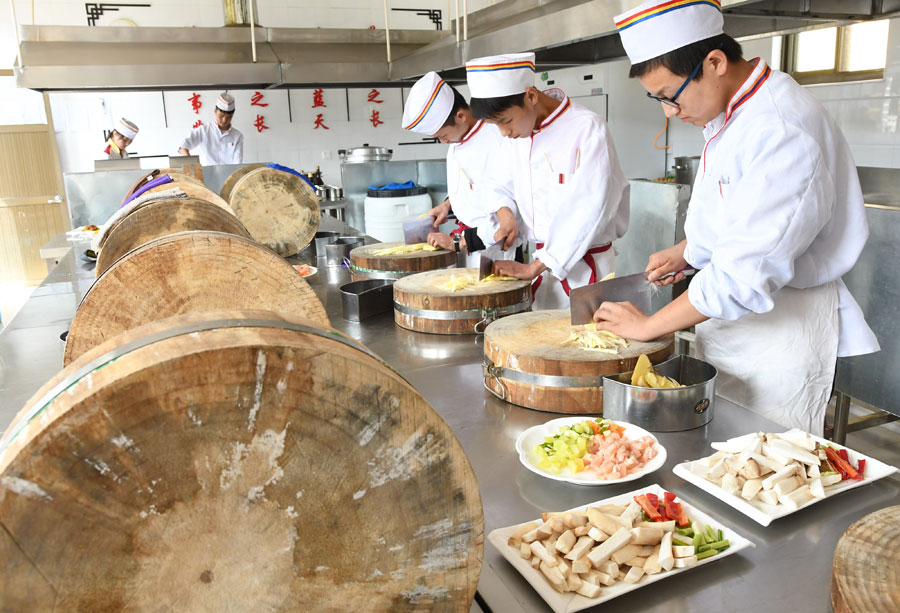Training lays out path away from poverty
China Daily,October 18, 2018 Adjust font size:

Trainees learn culinary skills at a vocational school in Linxia county, Gansu province, last year, as a part of the county's poverty alleviation efforts. [Photo/Xinhua]
Access to vocational education to be improved for workers, students
Impoverished workers will get more access to vocational training in the next two years, which can help them improve their incomes and shake off poverty, according to an action plan released recently by China's top human resources and poverty-relief agencies.
Registered impoverished workers and middle school students who failed to continue their education will be eligible for vocational training and technical education by the end of 2020, according to the action plan issued by the Ministry of Human Resources and Social Security, and the State Council Leading Group Office of Poverty Alleviation and Development.
"The plan provides timely help for the impoverished labor force and students in deeply poor areas because the majority of them lack key skills and enough ability to keep pace with society," said Lei Ming, deputy director of the Institute on Poverty Research at Peking University.
He estimated there are now nearly 10 million registered impoverished workers. "So, it's quite vital for the government to help improve their competitiveness by promoting occupational education," he said.
The main beneficiaries of the program live in poverty-stricken counties in the Tibet and Xinjiang Uygur autonomous regions, as well as Sichuan, Yunnan and Gansu provinces.
"Vocational and skill training is quite practical and can be gained relatively easily by those impoverished workers and students so that they can utilize the skills and knowledge to find a job," Lei said.
Cui Ben, 22, started studying railway passenger service in early October at Nanjing Aviation Technical School in Jiangsu province. He had worked for three years at an express delivery company after graduating from junior high school in Anhui province.
"I sorted express items every day, earning only 2,500 yuan ($361) a month, and I thought the job had no technical content," Cui said. "So I quit and came to the technical school to gain skills and knowledge."
After his three-year program he will be able to work on bullet trains or subways, earning about 5,000 yuan a month.
"The work environment will be much better than before and also I can learn much more from future colleagues," he said.
The action plan requires local authorities to organize impoverished workers to attend skill training and to cultivate pioneers willing to start their own businesses and create employment.
It also said every vocational and technical institute should develop at least one specialized major and establish a resource center by the end of 2020.
"They can cooperate with major local factories and companies to set up practice bases for students and teachers, which would be quite helpful," Lei said.
5d07f83c-3a11-4495-a767-0252f8f8187d.jpeg)
